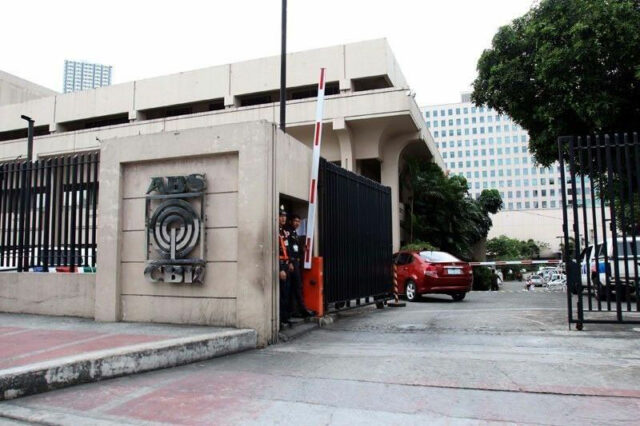More possibilities for PHL automotive industry in 2025
As the economy grows and the middle class rises, the Filipino’s deep appreciation for cars is growing ever more evident due to the increase in the number of sales and the amount of new car models released in the country yearly. Whether it’s for young entrepreneurs looking for a truck to help grow their business or a father seeking a sedan where they can drive their kids to school with, in the Philippines, there’s a car for every Filipino.
The Philippine automotive industry has been one of the key drivers of the national economy for several decades now and figures to be a cornerstone sector, at least, in 2025. Due to strong consumer demand, increasing purchasing power, and continuous investments from global and local manufacturers, the outlook on the industry remains bullish and optimistic.
According to data website Statista, “wholesale and retail trade; repair of motor vehicles and motorcycles” sector in the country contributed around 18.6% to the gross domestic product in 2023. This number touts the automotive industry as the economy’s biggest contributor beating out the manufacturing and services industries.
Based on a joint report by the Chamber of Automotive Manufacturers of the Philippines, Inc. (CAMPI) and the Truck Manufacturers Association (TMA), the industry had a record-breaking year in 2024 with 467,252 units sold, up by 8.7% from the 429,807 units sold in 2023 which held the previous peak.
This year, CAMPI and TMA are projecting sales to grow even further. With election-related spending triggering incremental economic demand added to the continuous government infrastructure spending, vehicle sales in the country are forecasted to expand to 512,000 units sold — an 8% increase from last year.
“As the Philippine auto market continues to expand, I am very much encouraged by the added possibilities this growth brings with it. The auto industry is truly transforming into a major pillar of economic development,” Toyota Motors Philippines Chairman Alfred V. Ty was quoted as saying in a recent BusinessWorld report.
On the manufacturing side, latest data from the ASEAN Automotive Federation (AAF), a coalition of industry organizations representing member economies within the regional bloc, show that the Philippines posted the highest growth rate in vehicle production in November last year compared with five other of its peers in the Association of Southeast Asian Nations.
According to the AAF, the country produced 10,554 units of vehicles in November 2024, a 27.1% growth compared to the 8,303 vehicle units manufactured during the same month in 2023. Despite this growth, the Philippines was still only fifth in terms of the volume of vehicle output among the ASEAN countries behind Thailand, which built 122,277 units; Indonesia with 101,688; 55,383 for Malaysia, and Vietnam with 16,251 units.
Due to the potential of the country in manufacturing automobiles, legislators and car manufacturers are pushing for more incentives to support other car makers not currently enrolled in the Comprehensive Automotive Resurgence Strategy (CARS) program, which was extended by President Ferdinand R. Marcos, Jr. in 2023.
Established under Executive Order No. 182 in 2015, the CARS program grants participating car manufacturers six years to meet the required sales target of 200,000 locally produced units per enrolled model to qualify for incentives. These benefits include fiscal support through a non-transferable tax payment certificate, which can be used to defray the tax and duty obligations of the participants to the government.
“Imagine how much more the industry can contribute if we have a larger production base. My vision for the automotive industry is to truly become an engine of growth by increasing its value output, employment, and labor productivity,” Cagayan De Oro 2nd District Rep. Rufus B. Rodriguez said in another BusinessWorld report.
Mitsubishi Motors Philippines Corp. (MMPC) First Vice-President for Corporate Division Imelda M. Abadilla-Brown echoed the same sentiments in 2023, saying that support from the government will help sustain gains under the program.
“The CARS program is something that the industry needs. It is a very good program. It’s very beneficial to the society. It generates jobs. We preserve jobs. We want to continue producing the Mirage,” she said.
In 2025, the Philippines is set to take even bigger steps in establishing itself as a key player in automotive manufacturing in the region. With the government granting more fiscal incentives and with local manufacturers boosting their production capabilities, the country’s automotive manufacturers has the potential to create more jobs, fuel economic growth, and spark innovation.
As the country’s industry shows promising growth, there is increasing optimism that global automakers will take notice of the Philippines’ potential. Mr. Marcos has expressed his hope that one day, American electric vehicle giant Tesla will consider building cars in the Philippines, during his speech at the brand’s launch of Tesla Center Philippines in Uptown Bonifacio in Taguig City last month.
“Every hire represents an investment in the Filipino talent that will drive this transition forward. With plans to expand further, Tesla is building a generation of Filipinos equipped to lead in the global shift towards sustainable technologies such as this. It is our fervent hope that Tesla might one day choose to manufacture its vehicles in the Philippines,” he said.
Moreover, Mr. Marcos reaffirmed his commitment to promoting sustainable transportation systems, stressing that electric vehicles represent the future. He highlighted the significant role Tesla could play in the Philippines’ efforts to combat climate change, even though Tesla cars and other electric vehicles are often regarded as “premium” options.
“While it is true that electric vehicles are currently seen as premium products, Tesla’s entry into the Philippine [market] signals much more than high-tech cars on the road. It is a step — a very significant step forward to our long-term transformation towards a more environment-friendly transportation system,” he said.
As 2025 unfolds, the Philippine automotive industry stands poised for solid year all around from manufacturing, government support, and sales. With optimism at an all-time high, it’s clear that the Philippines is driving toward a future where its automotive industry will play a leading role in both the regional and global markets. — Jomarc Angelo M. Corpuz
















